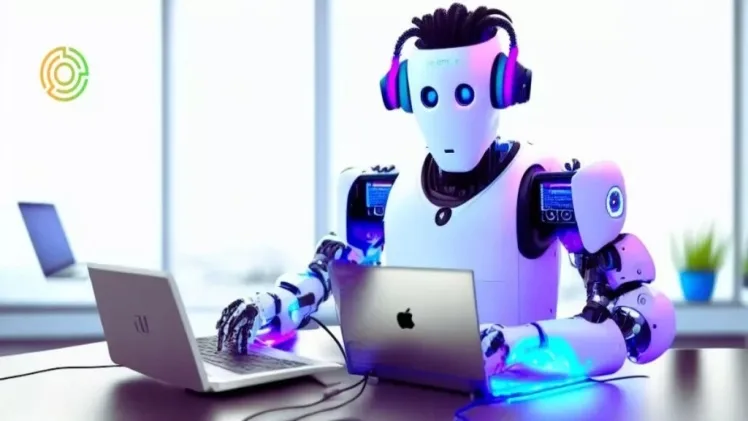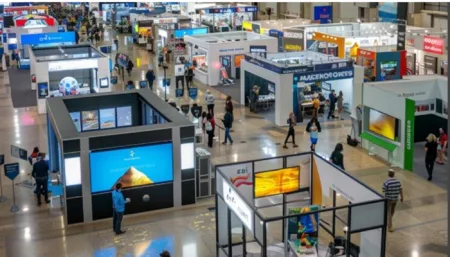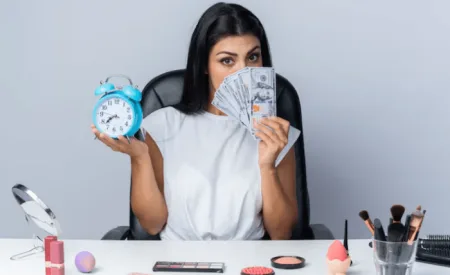Artificial Intelligence (AI) has become a household term, a technological marvel that is reshaping multiple facets of society. It’s more than just a buzzword; it’s a transformative force that has implications for everything we do. From machine learning algorithms that can diagnose diseases more accurately than human experts to self-driving cars that promise a future of safer roads, AI is versatile and revolutionary.
Connection of AI and Music Videos and Concerts
You might be asking, “What does AI have to do with my favorite music video or that concert I can’t wait to attend?” It may surprise you to know that AI technologies, particularly AI-generated photos, are beginning to play a pivotal role in the production of music videos and live concert experiences. Their influence is subtle but significant, and it’s something we’re going to explore in detail in this article.
History of AI in Music Videos and Concerts
Early Experimentations
The 2010s were a significant period of discovery and experimentation where AI started to make its foray into the music industry. Initially, the technology was mainly employed for predictive analytics—think music recommendation algorithms on platforms like Spotify. However, the creative scope began to expand as the technology matured.
The Rise of AI-Generated Photos
Fast forward a few years, and we’re seeing AI-generated photos taking center stage in various artistic expressions within the music industry. These aren’t just any images; they’re hyper-realistic, emotionally evocative visuals that add layers of depth and interpretation to the music videos and live performances they accompany.
Mechanism of AI in Photo Generation
Algorithms Involved
To understand how AI is capable of creating such realistic photos, you have to dive into the algorithms that make it possible. One key player is the Generative Adversarial Network (GAN). GANs enable a system to generate content that is not only unique but also incredibly similar to the human-created content it mimics, effectively blurring the lines between man-made and machine-generated art.
Machine Learning and Deep Learning
The underlying magic comes from machine learning and deep learning techniques. These algorithms sift through vast amounts of data, learning from each iteration to produce increasingly complex and nuanced images. This continuous learning means that the technology is always improving, getting closer to mimicking human creativity each day.
How AI-Generated Photos are Used
In Music Videos
AI-generated photos and visuals have opened new doors in the production of music videos. Gone are the days when CGI was the pinnacle of digital creativity. Now, artists and directors can use AI-generated photos to create unique characters, complex settings, and surreal landscapes that interact with the music in dynamic ways. These visuals add a new layer of complexity and excitement, making the music video a more captivating experience.
In Concerts
The live concert experience has also been enriched by AI-generated imagery. Imagine attending a concert where the stage visuals change in real-time, reacting to the mood and energy of the crowd. AI makes it possible to create a more immersive, interactive experience that feels personalized, even in a stadium filled with thousands of people.
Influence on Artistic Creativity
New Dimensions in Creativity
Artists now have a whole new set of tools at their disposal, thanks to AI. The use of AI-generated photos allows for a blend of human creativity and computational power, breaking down barriers and opening up previously unimaginable avenues of artistic expression.
Collaborations Between Humans and AI
We’re seeing a trend where human artists collaborate with AI algorithms to create art that is both thought-provoking and stunningly beautiful. It’s a partnership that elevates both parties and expands the boundaries of what’s considered possible in artistic expression.
Ethical Concerns
Copyright Issues
While the creative possibilities are exciting, they’re not without complications. One major concern is copyright. Who owns the rights to AI-generated content? Is it the artist, the developer of the AI algorithm, or a combination of both? These are questions still awaiting clear legal guidance.
Data Privacy
Another ethical hurdle is data privacy. For AI to generate personalized experiences at concerts, it may require data from the attendees. This raises concerns about data collection and how that information is used and stored.
Impact on the Music Industry
Benefits
The music industry stands to gain a lot from the use of AI. From cost reductions in set designs and video production to the ability to create more engaging and creative experiences for the audience, the upsides are plentiful.
Limitations
However, we can’t overlook the limitations and challenges that come with this new technological frontier. There’s a risk that the human element could get lost, overshadowed by flashy AI-generated visuals. Additionally, ethical considerations like data privacy and copyright could pose problems down the line.
Case Studies
Popular Music Videos
A number of top-charting artists have already dabbled in the use of AI-generated visuals. These music videos are receiving not just millions of views but are also the subject of critical analysis and discussion, creating a new dialogue around the integration of technology and art.
Iconic Concerts
When it comes to live performances, several iconic concerts have employed AI-generated imagery as part of their stage design, resulting in unique and memorable experiences for the audience.
Future Prospects
Predictions and Trends
The use of AI in music videos and concerts is not just a passing fad—it’s a growing trend that’s likely to continue evolving. As AI technology becomes more sophisticated, its application in the music industry will become more refined and impactful.
Concerns for the Future
But let’s not forget that with great power comes great responsibility. The ethical and creative implications of AI in art and entertainment are issues we’ll need to navigate carefully as we move forward.
Conclusion
AI-generated photos are revolutionizing the worlds of music videos and concerts, offering innovative ways to enhance artistic creativity while also presenting a set of ethical challenges that society will need to address. As AI continues to evolve, its role in the music industry is likely to grow more complex and influential. The balance between technological innovation and artistic integrity will be key to shaping a future that honors both.



